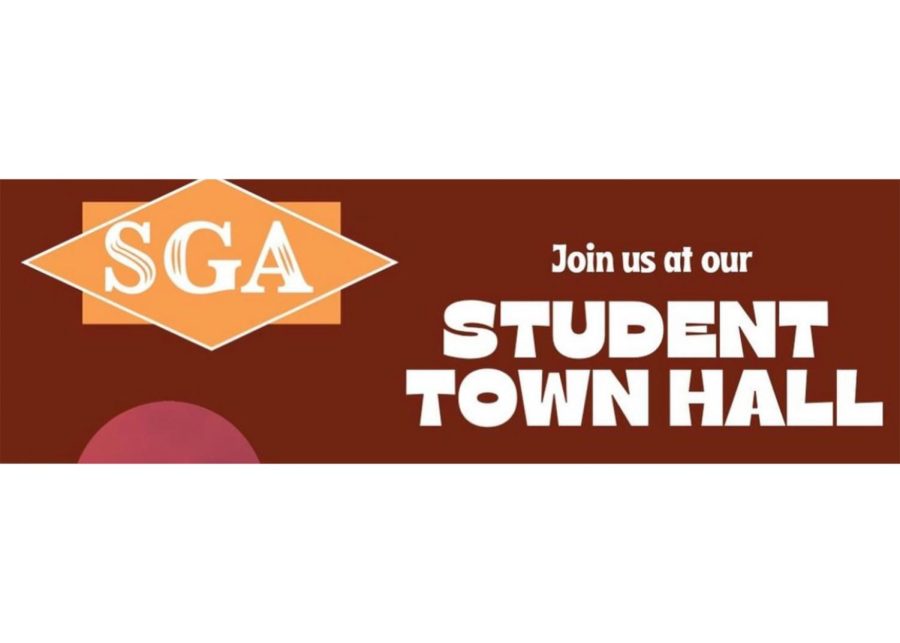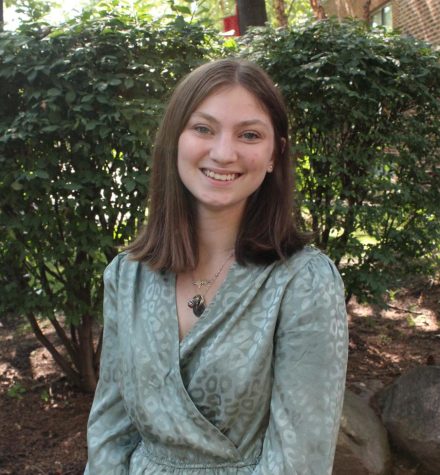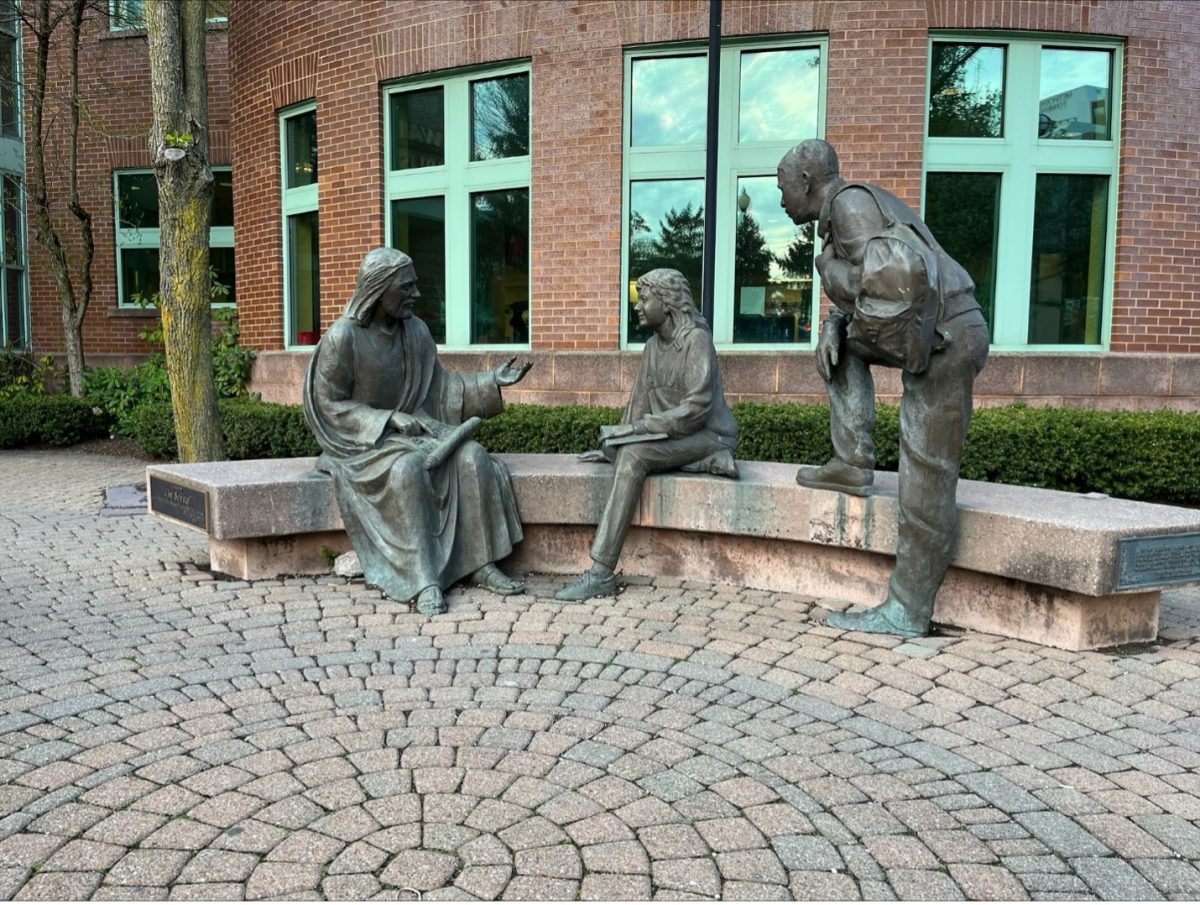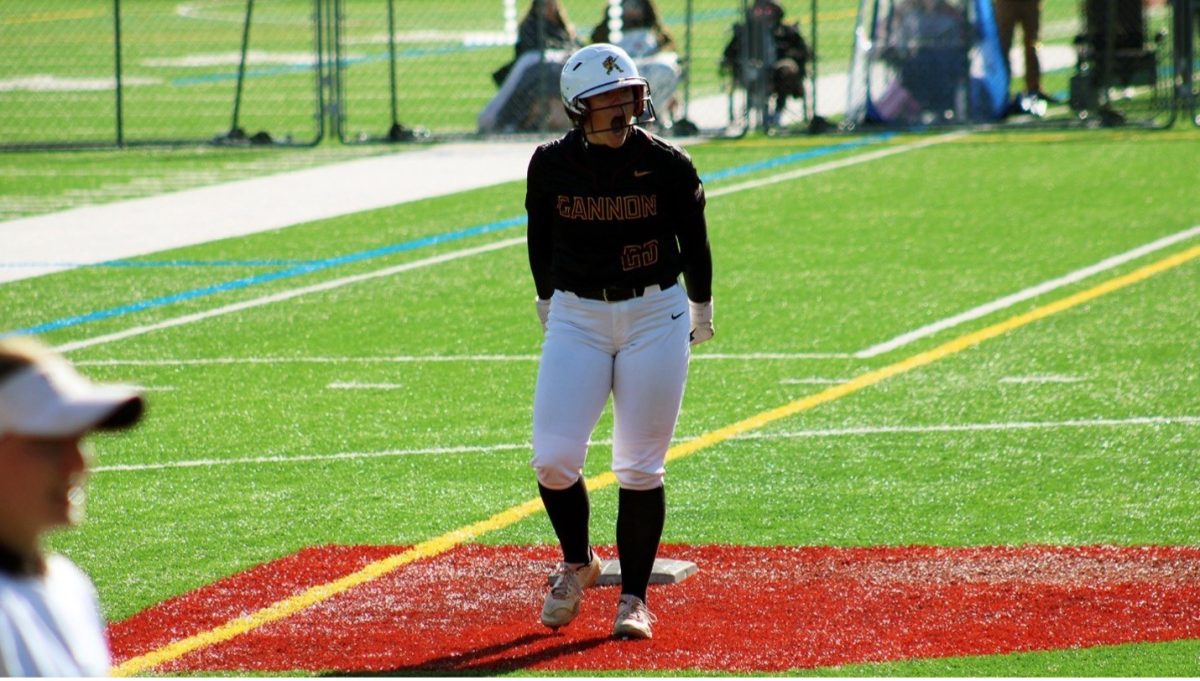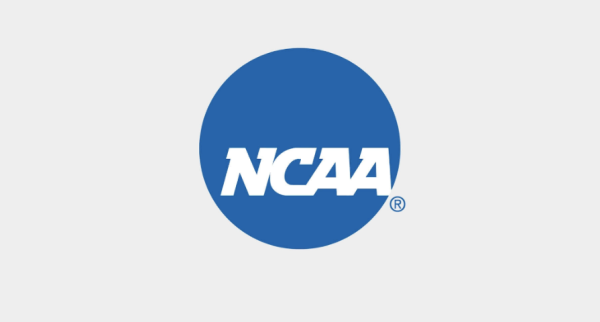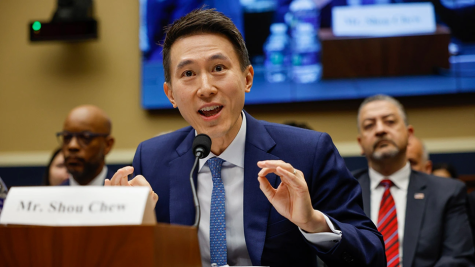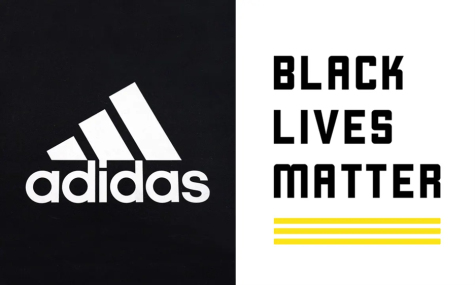SGA town hall focuses on student concerns on campus
Gannon University’s Student Government Association hosts the semi-annual student town hall meeting for all members of the Gannon community.
March 16, 2022
Gannon University’s Student Government Association hosted a student town hall on March 7, and despite a relatively small turnout, those in attendance considered the event a positive one.
This event, which took place in the Yehl Alumni Room, was hosted by Walter Iwanenko, Ph.D., provost and vice president for Student Experience, and it provided students the opportunity to voice their opinions and concerns on certain Gannon policies.
The turnout of the town hall was not what SGA and Iwanenko anticipated.
“The crowd was smaller than expected, probably only 25 students and faculty/staff combined,” said Matt Whaley, a junior history and political science major.
Although the turnout was smaller than anticipated, Whaley said the small group allowed for a more laid-back and conversational atmosphere.
During the time when there was not a discussion, Iwanenko would ask the audience questions.
The meeting ran 30 minutes over the scheduled time because there was such a rich back-and-forth between students and staff.
From the experience of students who attended this event, hearing how the university reaches certain conclusions and decisions is helpful in understanding its mission and goals.
Dominique Booker, a senior SGA representative, said she was glad for the opportunity to attend the town hall event.
“I think that as students we hear about certain things that administration decides and question if there was much thought or if there is a motive that isn’t meant to better the student’s experience,” said Booker.
“However, at events like these, students can confront the administration and get an understanding of what is going on.”
Transparency between the campus decision makers and the students is vital to some students.
Being able to hear how staff members formulate the decisions that they make aids in the understanding for a number of students.
Some of the decisions and topics that were brought up during this town hall were ones that the students themselves were already concerned about and had their own questions.
Matthew Schlessman, a senior chemistry and pre-dental major, and president of SGA said some of the topics of interest that were discussed included the honors program reformation, how the construction at South Hall is coming along, the implementation of Gannon 101, and the growth/future for the JEDI initiative.
Each of these topics implies massive change to the campus, the student body and the faculty.
Focusing on these changes, students had many opinions to share with Iwanenko and he listened respectfully and enthusiastically.
One topic that was brought up was the new implementation of Gannon 101 to replace First Year Seminar.
Gannon 101 will be more of a streamlined and cohesive class that integrates first-year students into the university.
Annie Ruzanic, a junior nursing major, said she thinks that the new Gannon 101 program will be a good change.
“I personally brought up how I think that Gannon 101 is going to be very beneficial to freshmen, as FYS was different for everyone, and no one really got the same first-year experience,” said Ruzanic.
The university’s goal of making sure each freshman receives the same experience is now a primary focus.
The Gannon 101 class was just one topic that was focused on in the town hall. Another key topic was the changes to the liberal studies core for CHESS.
The liberal studies core is something that has been a topic of conversation for a while, and changes are occurring to make it more helpful for students as they prepare to enter the workforce.
This new core will include a foundational core, which is English, philosophy and theology credits.
An integrative core includes additional English, philosophy and theology along with history, communication and reasoning courses.
Lastly, the new set-up will include a vocational core with professional communication and ethics/leadership courses.
Megan Woller, director of Liberal Studies, said, “With its adaptable structure, we hope that the updates to the core will highlight the relevance of a Liberal Studies education to Gannon students’ lives.”
The university hopes the new liberal studies core will better prepare students for their future careers and turns them into more well-rounded individuals.
Given the topics covered, participants thought the Town Hall was a productive use of time.
Joseph Pfleger, a freshman pre-law and finance major, expressed his appreciation for the SGA town hall.
“Here at Gannon the opportunity of a student town hall as a unique space for conversations between students and the administration is a great spot for students’ voices to be heard and for positive change to occur,” said Pfleger.
Iwanenko said students asked great questions and shared their experiences, both positive and negative.
“This relationship does not happen on every university campus,” Iwanenko added.
MOLLY BEGEMAN









